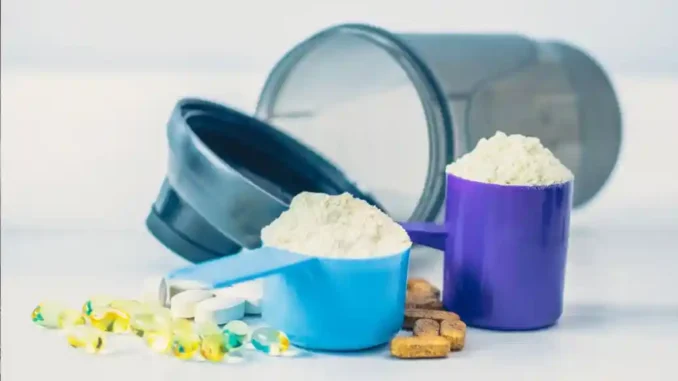
Our body is a complex machine developed over millions of years of evolution and natural selection. Its correct functioning depends on various factors, but at its basis there is a healthy and correct diet. To ensure that the vital functions of our organism are carried out, the body uses the energy and nutrients that we introduce through food.
Carbohydrates, fats, proteins, vitamins and so on all serve to “fund” various types of cellular activities. The deficiency of a certain substance can lead to the appearance of more or less serious symptoms, as well as the failure of our vital functions.
Nutritional supplements , such as iron supplements , when used correctly and combined with an effective, daily training program, can have a significant impact on athletic performance and overall well-being.
In this article we will talk about the most effective supplements for those who train daily, based on their function on the body and the benefits they can bring.
What are food supplements used for?
To be successful in training and obtain the desired results, nutrition is very important and should never be neglected. If you don’t eat the right foods in the right quantities, your training and recovery may suffer.

Food supplements, if used correctly, are a key element in sports nutrition, because they improve the intake of certain important nutrients for the body and allow us to more easily reach the quantities of macro and micro nutrients required by the diet that is follows.
Most athletes, whether professionals or simple gym goers, are unable to express themselves at their best in their favorite disciplines due to an incorrect or incomplete nutritional program. Very often, in fact, what you take in from food is not enough , even though the diet is correct and well balanced, because it is difficult to find in ordinary food some nutrients necessary to promote growth and physical recovery at the exact moment in which the body has them. need.
This is exactly where supplements come into play. The very word ” supplement ” makes us understand how they serve to “supplement” our normal diet with food supplements depending on our purposes. A bodybuilder or an athlete will supplement their diet with protein powder to reach the daily amount necessary for their muscles to grow, accompanying everything with the use of other supplements, such as iron, vitamin B and C, of Omega-3 ect…
The importance of iron supplements for training
Iron is an example of a very important nutrient that we can find in good quantities in fairly common foods. Meat, egg yolks, legumes and fish are among the major sources of iron. Nonetheless, it often happens that, due to allergies , personal tastes or scarcity of the product, these foods are not consumed in the quantities necessary to provide the right ratio of iron to our body. In this, as in other cases (for example that of diseases that prevent us from extracting iron from food), iron supplements play an extremely important role.
Often overlooked in the world of sport, iron is a very important mineral for the human body and even more so for athletes: iron is, in fact, essential for our body to allow the production of hemoglobin and myoglobin. These two proteins present within the blood make the transport of oxygen possible: hemoglobin is responsible for finding and transporting oxygen from the lungs to the tissues of our body, while myoglobin , similarly, transports it to our muscles.
To promote good oxygenation of cells and muscle tissues it is therefore necessary to have a good daily intake of iron, which can be easily obtained through iron supplements.
Why are iron supplements important for athletes?
Iron is not always considered when defining a food supplement program for daily training, but a good personal trainer knows how important a good iron supplement is.
The body of those who regularly perform sporting activities needs greater oxygen transport than those who are sedentary, because the body, under conditions of effort, tends to consume more hemoglobin and myoglobin due to sweating .
On average, the requirement of an aerobic endurance athlete who trains for approximately three hours a day, 3-4 times a week, is 25-30 mg/day of iron – which iron supplements allow you to achieve.
How to choose the right iron supplements for your workout

To correctly choose iron supplements to take daily, the ideal starting point is to take into consideration your diet and the type of training you do , based on your fitness goal. You need to ask yourself if you are consuming the right foods and if you are training appropriately to achieve the goal you have set for yourself.
There are no universal rules that work for everyone. Depending on the sports disciplines, the level of intensity of effort and one’s physical conformation, supplements can help and support us when different needs of the body arise or depending on the objective we want to achieve. Starting from these needs or objectives, let’s see which are the right supplements to take, whether iron supplements or other substances, always considering that it is the synergy of nutrients and balance that contribute to wellbeing.
Obviously, our body also needs other macro and micro nutrients to function efficiently. Here is a list of supplements and their functions that might help you understand what you need.
1. Creatine for mass building
Creatine is one of the most used sports supplements in the world. Various research has shown that it increases physical performance in a short time, especially in high intensity exercises . Creatine helps to increase creatine phosphate, stimulates muscle satellite cells, exerts a volumizing effect at a cellular level and increases Dihydrotestosterone. Creatine is also useful for endurance, especially if taken before training, while, if taken after, it is particularly useful for increasing strength and muscle mass.
2. Beta-alanine to increase endurance
Beta alanine helps performance by increasing resistance to fatigue , improving performance and increasing muscle mass. With this amino acid, training will be more intense and muscle hypertrophy will be greater. When taken before physical activity, beta alanine promotes strength for a longer time during prolonged and intense workouts. In the repetition phase, it helps you perform the final set more easily and improves recovery capacit .
3. AAKG for nourishing muscle cells
AAKG (arginine alpha-ketoglutarate) is a superior form of arginine that aids in nutrient absorption. The arginine supplement, if taken after training, induces the production of nitric oxide and generates vasodilation which increases blood flow, favoring the supply of nutrients to the muscle cells , and thus improving their trophism.
4. Protein powder for activating protein synthesis
Several studies have shown that taking protein supplements immediately after training is very important for stimulating protein synthesis . For athletes, the best are whey and hydrolyzed proteins, preferable to casein, soy proteins and isolated proteins. Differentiated absorption protein blends are excellent if the next meal takes place after more than an hour, because the activation of protein synthesis lasts longer.
5. Caffeine and guarana to avoid feeling tired
Caffeine and guarana must be taken together because they work synergistically, with the effect of increasing energy in power exercises and adrenaline, and decreasing the perception of fatigue and pain . However, it must be considered that reckless use of these two elements can cause an increase in vascular pressure, cause gastrointestinal problems and compromise the normal sleep cycle.
6. Electrolytes for replenishment
It is good practice among those who train to combine an electrolyte supplement such as magnesium and potassium with other supplements. Electrolytes help the body stay hydrated , helping to increase workout duration. If sweating becomes very abundant even when you do not carry out particularly long or intense activities, for example in conditions of high temperature and humidity, the priority must be to replenish fluids and electrolytes.